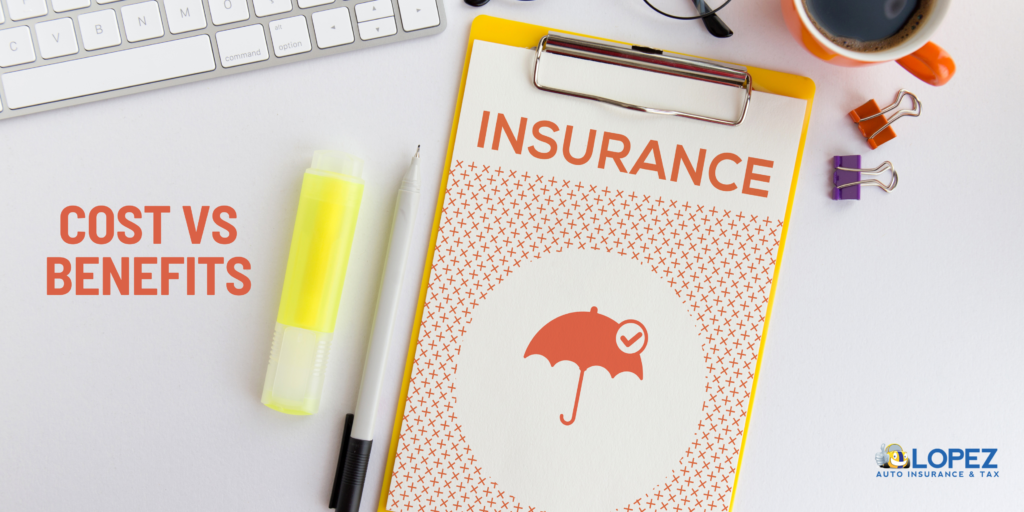It is more crucial than ever to have the appropriate insurance coverage in the fast-paced, constantly evolving world of today. Whether it is for your business, home, vehicle, health, or both, insurance acts as a safety net to shield you and your possessions from unforeseen circumstances or accidents. But having insurance alone is insufficient. To make sure you are sufficiently protected against potential risks, you must review your coverage regularly. This blog post is intended primarily for Dallas, Texas, residents and Lopez Auto Insurance clients. It will cover how to assess your insurance coverage and ensure that you are completely covered in 2024 and beyond.
Table of Contents
Examine Your Existing Coverage
Making a list of your current insurance coverage is the first step toward assessing it. Examine your policies’ exclusions, deductibles, and coverage limits carefully. If anything has changed in your life or situation since you last bought insurance, like getting a new car, relocating to a new residence, or launching a business, let us know about it.
Find Any Possible Gaps
After you have a clear understanding of your present coverage, look for any possible underinsurance or gaps in it. You might need to raise your homeowner’s insurance coverage to reflect the increased value of your property, for instance, if you recently bought a new house or undertook major renovations. In a similar vein, you might require extra coverage to guard against liability or property damage if you have started a business or bought new assets.
Think About Emerging Risks
New risks that may not have been on your mind when you bought your insurance policies are always coming to light in the quickly changing world of today. Cyberattacks, severe weather, and modifications to local laws, for instance, can all have an impact on your risk profile and the kind of coverage you require. Stay informed about current events and trends that may impact your insurance needs, and be proactive about adjusting your coverage accordingly.
Examine Policy Exclusions
To find out what is and is not covered by your insurance, carefully review the exclusions in your policies. Terrorist attacks, deliberate actions, and specific kinds of natural disasters are examples of frequent exclusions. Speak with your insurance agent about adding endorsements or getting additional policies to fill any coverage gaps if you are worried about them.
Examine Your Deductions
The amount you must pay out-of-pocket before activating your insurance coverage is known as your deductible.
Evaluate Your Deductions
A deductible is the amount that has to be paid out of pocket before your insurance is activated. In general, lower premiums are associated with higher deductibles; however, in the event of a claim, the amount you must pay will also rise. Carefully consider your deductibles to make sure they are appropriate for your financial situation and level of risk tolerance. Make sure your deductibles are appropriate for your risk tolerance and financial status by carefully evaluating them. You might be able to reduce your premiums if you can afford to pay a larger deductible.
Consider Cost vs. Benefit

When evaluating your insurance, consider the benefits and drawbacks of each plan. Are you spending money on insurance that you will not likely need? Are there any situations where you might save money by lowering your coverage because you are overinsured? Conversely, are there any situations in which you lack adequate insurance and might encounter severe financial difficulties in the event of a claim? To make sure you are getting the most out of your insurance money, strike a balance between your coverage needs and your spending limit.
Shop Around
It is important to compare quotes from several insurers because insurance rates can differ greatly between providers. To help you sort through the options and locate the best coverage at the most affordable prices, think about collaborating with an independent insurance agent. Make sure to inquire about any discounts that you might qualify for, such as when you install security features in your home, bundle multiple policies, or have a clean driving record.
Review Every Year
Since insurance requirements can alter over time, it is critical to review your coverage every year and make any necessary adjustments. Every year, set aside some time to review your policies, evaluate any changes to your situation, and make sure your coverage still suits your needs. Make sure to update your policies following life events, such as marriage, divorce, having a child, or retiring. These can all have an impact on your insurance needs.
Seek Professional Advice
Do not be afraid to consult a professional if you have questions about your insurance needs or how to assess your coverage. An expert insurance representative can offer tailored advice based on your particular circumstances and assist you in selecting the right coverage. In the event of a disagreement with your insurer, they can also help you navigate the claims procedure and defend your interests.
Last but not least, keep yourself updated on developments in the insurance sector, fresh goods and services, and emerging themes that could affect the kind of coverage you require. To stay informed about the most recent developments, follow reliable information sources like government websites, consumer advocacy organizations, and trade journals. You can make sure you are completely protected against potential risks and have peace of mind knowing that you are ready for whatever the future may bring by being proactive and informed.
FAQs:
How often should I check the terms of my insurance policy?
Reviewing your insurance policy once a year or after a big life event, like getting married, buying a new house, or launching a business, is a smart idea.
Which parts of my insurance policy should I assess?
Think about things like your current assets and liabilities, your risk tolerance, any changes in your life circumstances, and new risks in your area when assessing your insurance coverage.
What kinds of insurance are necessary for me as a Dallas, Texas, resident?
If you live in Dallas, Texas, you might need insurance for your business, health, vehicle, and home, in addition to supplemental coverage for risks like flooding and severe weather.
What are some ways I can lower my insurance costs?
Raising your deductibles, bundling multiple policies with the same insurer, and taking advantage of discounts for things like having a spotless driving record or adding security features to your house are just a few ways to lower your insurance premiums.
How do I go about making an insurance claim?
In the event that you must file an insurance claim, get in touch with your insurance provider or agent right away to report the incident and start the claim procedure. Make sure to give the claims adjuster all the required paperwork and to assist them as much as possible.
Can I revoke my insurance coverage whenever I want?
Most of the time, you can contact your insurance company or agent to cancel your policy at any time. However, if you cancel your policy early, you might be charged a penalty or other expense, so carefully read the terms.
Do I need an insurance endorsement, and what does it mean?
A change to the terms or coverage of your insurance policy is called an insurance endorsement. To add coverage for particular risks or assets not covered by your regular policy, you might need an endorsement.
How can I minimize the risk of liability for my company?
Consider acquiring commercial umbrella insurance, professional liability insurance, and/or general liability insurance to shield your company from liability risks. It might be a good idea to put risk management techniques like worker training and safety procedures into practice.
If the insurance company rejects my claim, what should I do?
If your insurance claim is rejected, carefully read the denial letter to find out why it was rejected. You can file an appeal and submit more proof to back up your claim if you think the denial was unfair.
Is having too much insurance possible?
Indeed, having more coverage than necessary or paying for insurance you will not likely use can lead to overinsurance. It is critical to review frequently.





